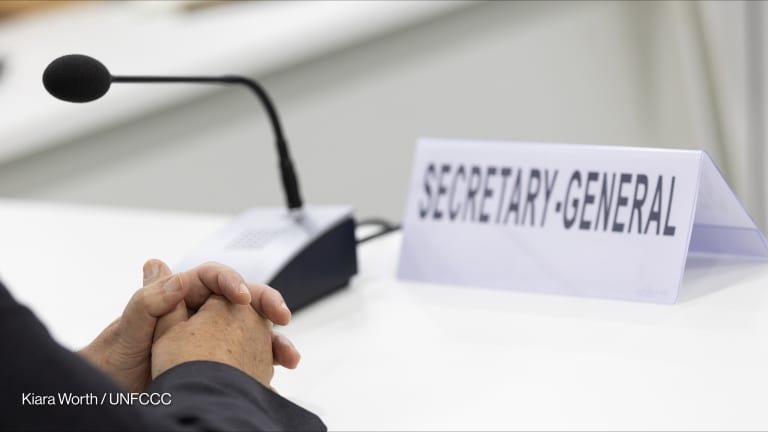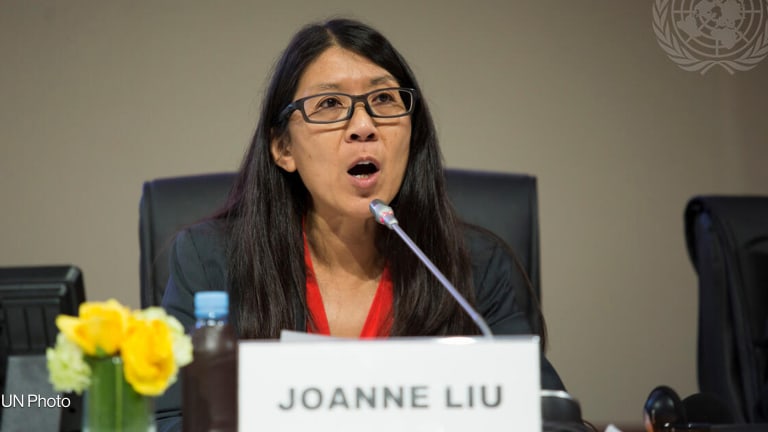Opinion: Already, the UN secretary-general election is compromised

United Nations Secretary-General António Guterres announced in January that he would seek a second five-year term, to start in January 2022. Immediately thereafter, China and the United Kingdom welcomed Guterres’ candidacy. German Chancellor Angela Merkel echoed these warm words. Since then, they have remained silent on the subject.
It’s important to mention that these endorsements come from top-ranking nations and some of the five permanent U.N. Security Council members. These countries have veto power, acquired in a geopolitically different time 75 years ago.
By expressing support for the incumbent secretary-general at this very early stage — well ahead of the official selection in September — these countries compromised the entire selection process. After Guterres announced his ambition to stay on Jan. 11, the General Assembly and Security Council presidents wrote a letter to member states in early February, inviting them to solicit candidates.
General Assembly President Volkan Bozkir set up a website to document the selection process. So far, the website only mentions one candidate: the incumbent secretary-general.
The other contender who has submitted a formal application is Arora Akanksha, a 34-year-old native of India and citizen of Canada. She is not mentioned in Bozkir’s communication to member states. Rumors have it that other candidates from NGOs were considering applying, but so far no one has stepped forward.
With the first informal selection dialogues in May, time is running out for others to submit their applications. Given countries’ premature endorsements of Guterres, all U.N. insiders know that the playing field was skewed from the start. It is hard to see any other country nominating a candidate, killing the cautious efforts to create an open appointment process.
In an era of urgently needed transformational change ... it is unjustifiable that a very small number of countries believe they alone have the right to select a U.N. leader.
—Looking back to the last secretary-general selection in 2016, there was enthusiasm and confidence that it would be the start of an ongoing democratic process. Civil society groups launched a serious campaign for transparency. But key member states have now undermined this work. Old habits die hard.
While Equality Now has underscored that it is “past time for a woman UN Secretary-General,” no self-respecting, qualifying top leader will participate in a process that lacks credibility and integrity — let alone a woman leader. She would feel much too vulnerable and wouldn’t risk plain rejection.
It is a shame that we might be left with daring, inspirational candidates whose prospects are not realistic, given the stringent criteria for the role.
A secretary-general should have proven leadership qualities, managerial abilities, extensive experience in international relations, and strong diplomatic skills. We need a person who promotes transparency and accountability and displays a positive leadership style — someone who is willing to step outside the U.N. bubble to get to know the public. Today’s challenges require bold, fresh, inclusive leadership.
To secure the best possible leader, an open and transparent process is a prerequisite. In an era of urgently needed transformational change — to which the U.N. and its member states have committed — it is unjustifiable that a very small number of countries believe they alone have the right to select a U.N. leader.
This is not about Guterres’ performance but about the change we want to see — the hope for the U.N. to be capable of transforming.
Number of UN women leaders grew under Guterres, with some caveats
The number of top-level female leaders at the U.N. has jumped during U.N. chief António Guterres' tenure, new analysis shows. But other trends, like regional disparity, remain largely unchanged.
Selecting the next secretary-general through a credible, open, and transparent process is a must for the U.N. to retain credibility among “we the peoples.” Selecting and appointing a top woman candidate would also show that real change is possible. While Guterres has boosted gender parity in U.N. leadership positions, the international organization still lacks the leadership to make urgently needed change happen.
Now, Guterres could prove his commitment to transforming the U.N., providing the example the world needs. Imagine if he publicly decided to step aside in favor of a credible and open process leading to the first female secretary-general. It would certainly be a historical and unprecedented step that would secure Guterres a solid place in the history books.
Search for articles
Most Read
- 1
- 2
- 3
- 4
- 5








